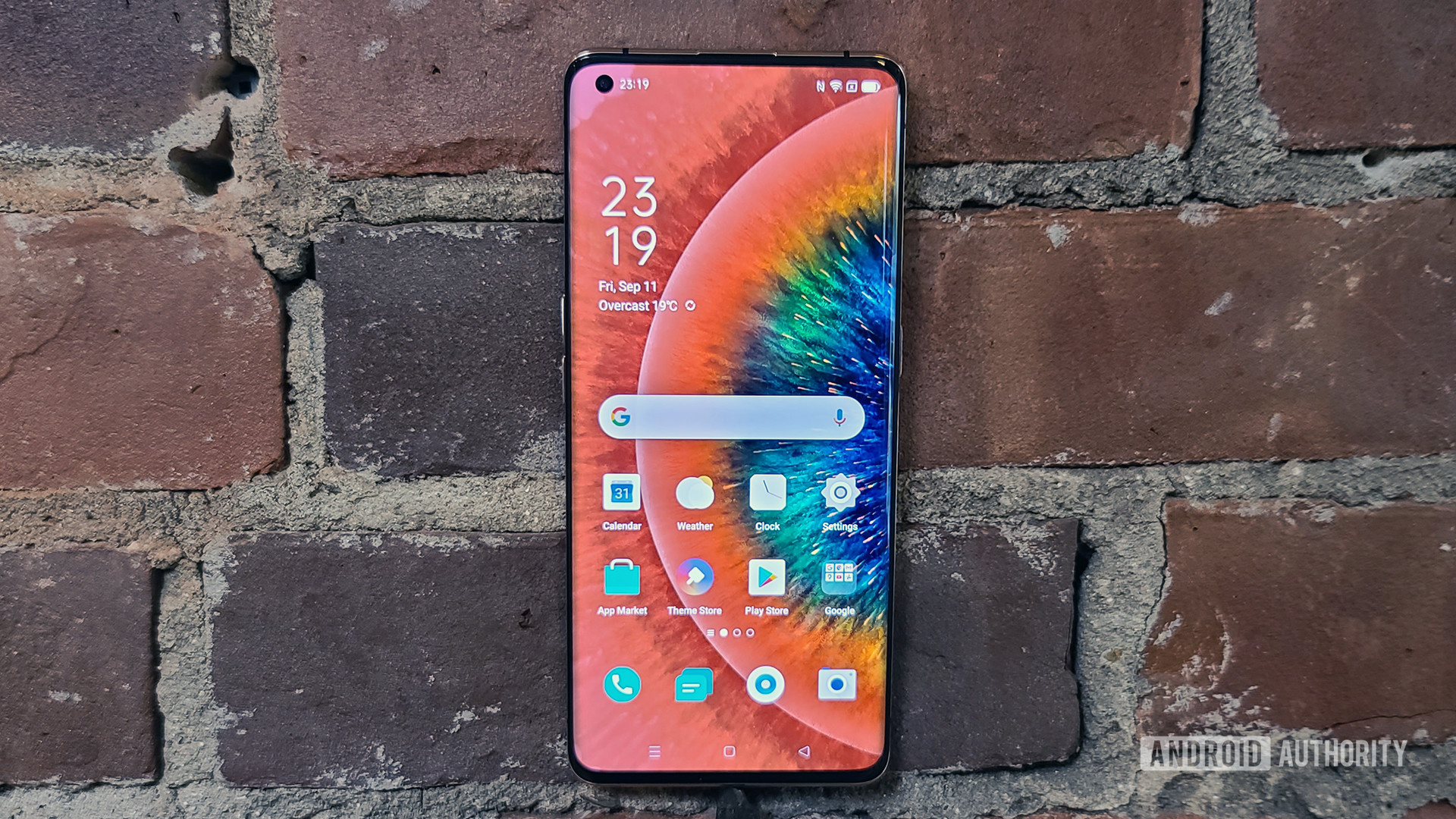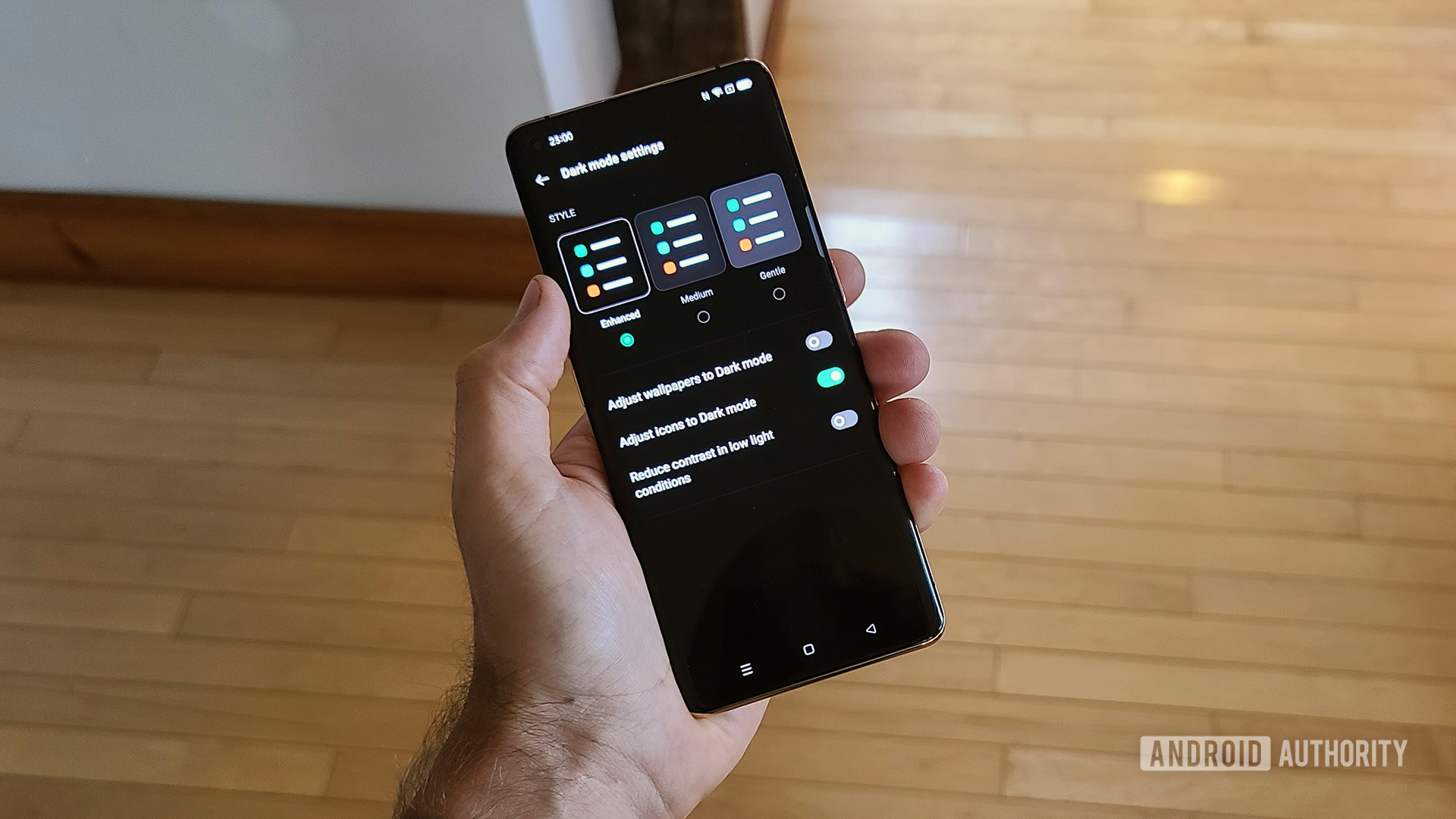Affiliate links on Android Authority may earn us a commission. Learn more.
How OPPO keeps your information safer with ColorOS

Privacy has become one of the greatest concerns of our day, although it’s something I’m sure we’d rather all not think too much about. Today, everyone carries around their primary point of weakness in their pocket: their smartphone.
As recently as September 2020, Google found 16 alarmingly widespread apps that all contained malware called Joker. Joker not only has the ability to steal your entire SMS text message history, contacts, and other smartphone data, it can also quietly sign you up for premium wireless application protocol services. This is a typical case of fraud, but there are different types of privacy leaks that we are hardly aware of.
96% responded that they will continue to use an app even when a breach is discovered.
Most leaks come from simple app use. Inevitably, we have to send data to apps to gain access or enable some form of convenience. According to a recent survey, 96% of voters responded that they will continue to use an app even when a breach has been discovered.
Another type is on-device leakage. We store more and more sensitive personal details, banking and financial information, as well as biometric data (including our fingerprints and faces) in our pockets. Leaks can easily happen when you lose your phone or even just lend it to someone else. This has inevitably driven the industry to better secure our smartphones and our data in recent years. These developments include hardware-based secure processing elements, like Google’s Titan-M security chip, Apple’s Secure Enclave, and TrustZone inside Arm CPUs.
Another simple but severe leak is identity theft. According to the FTC’s Consumer Sentinel Network database, there were over 444,000 cases reported in 2018 alone. Bad actors frequently engage in credit card fraud, tax fraud, and phone/utility fraud to take consumers for all they’re worth and then stick them with the bill. The primary point of entry for many of these cases? Mobile devices.
While the risks have seemingly never been greater, the tech industry also has more innovative security solutions than ever before.
Smartphone operating systems keep security one step ahead

Much of privacy protection currently falls not to regulatory groups, but to corporate policies and user behavior. Fortunately, the mobile industry takes privacy concerns seriously. Android, as the most widely used smartphone software, serves great importance in privacy protection and takes measures at the level of the operating system.
Android 11, in particular, has brought a number of updates to the scene that harden your phone against privacy invasion. With Android 11, users gained access to things like scoped storage enforcement and one-time permissions. Permissions also now automatically reset on apps that haven’t been used in a few months, preventing bad actors from sneaking permissions into their app and then using them nefariously at a later date.
See also: Android 11 improves on privacy: Here’s how it can get even better
Background location access has been made more granular, allowing users to choose when and how apps can gather location information. Developers have also been issued best practices to remain in compliance with Android 11 standards that encourage explaining to users why they are granting various permissions. Foreground services, which can include things like camera and microphone data in addition to location data, are now made distinct from background services in a way that gives users more control over an app’s access to this information.
Android 11 has brought a number of updates that harden your phone against privacy invasion.
Finally, package visibility also changes how apps interact with other apps, creating a manifest of interactions that can later be used to hold developers accountable and increase transparency for end-users.
All this to say, it’s clear Google and the Android team are keeping a sharp eye on privacy as they continue to roll out new software versions and security updates.
However, these are one-size-fits-all solutions. The Android ecosystem is unique because there are simply so many hardware and software creators involved in creating the landscape.
Many Android OEMs have done a great job in enhancing the privacy situation of smartphone users. Examples include Xiaomi’s privacy playbook which clearly states what is requesting and where your information is stored and HUAWEI’s EMUI which is able to hide notes and even pictures. Third-party apps are also increasingly making use of fingerprint capabilities. OPPO, as an important player marching to the international market, brings its solutions with its Android skin, ColorOS.
Above and beyond with ColorOS

OPPO has taken a look at the privacy challenges users face in the modern era, studied the measures coming to Android 11, and elected to take these privacy strategies to another level. Certified by the most strict ISO and ePrivacy certificates, OPPO manages to encrypt user information while storing and transmitting.
In addition to receiving all the security provided by Android 11, owners of OPPO devices also enjoy augmented protection thanks to the changes brought to ColorOS 11.
Right off the bat, ColorOS provides users with better tools to easily manage their own privacy. OPPO’s Private System lets you create a virtual copy of your system with all your apps and data intact. This system is independent of the original system, and it can be locked away behind fingerprint verification or a pin code. Whether you’re operating in the standard system or your private one, you can still have access to all of your apps and you’ll still receive notifications regardless of which system is currently active.
Another tool in the ColorOS toolbox is a Private Safe, which is fairly self-explanatory. This vault provides extra encryption for private files and photos that are not accessible via any third-party apps. It’s also useful for protecting yourself from prying eyes should someone else ever come into possession of your phone.
Indian users also get access to DocVault, a dedicated, safe environment for things like certificates and personal documents. Previously, you might have had concerns about doing something like scanning your driver’s license or vehicle registration to your smartphone, but with a safe environment for these kinds of files to live, they’re always safe and easy to find. This can make navigating something like an airport check-in or traffic police inspection far less stressful to navigate since you’ll never be without digital copies of crucial documents again.
ColorOS 11 puts control back in your hands with App Lock.
Historically, an app’s security fell mainly to the security measures its developer chose to integrate. Banking apps, for instance, may or may not require user authentication for each individual user. ColorOS 11 puts that control back in your hands with the App Lock option. Now you can easily choose which apps require a fingerprint or pin code before they can even launch.
Tools are good, but what about protecting you from things you might not anticipate? ColorOS also comes with an array of passive security measures that are active whether you choose to engage them or not. (They can, of course, be disabled or adjusted through settings, but why would you?)
For instance, ColorOS provides personal information protection through the use of an additional dialogue popup that allows you to opt out of sending user data whenever an app requests it. If you decline to send said data, the system works around apps designed to force user data submission by sending a blank data format to the app. This way, the app keeps running as intended without the need for you to sacrifice valuable private information.
Permissions have always been tricky to manage on smartphones. Users simply have too many apps with too many varied permissions to present them in a clear and concise way. At least, that’s the typical problem. ColorOS has taken this transparency issue head-on with its permission management system, a clear heads-up display of all the access you’re signing over to apps where you can allow or decline access to different kinds of data with ease.
Payment protection provides an added layer of security when money is being exchanged through mobile APIs. ColorOS 11 analyzes each payment environment you encounter to give you a heads up if anything uncouth or shady is being perpetrated under your nose.
In total, OPPO’s ColorOS brings everything we love about Android 11’s privacy initiative to your smartphone, but then it goes a step further by putting more control in your hands, granting you access to a higher level of app permission transparency, and helping you safely store private data right out of the box.